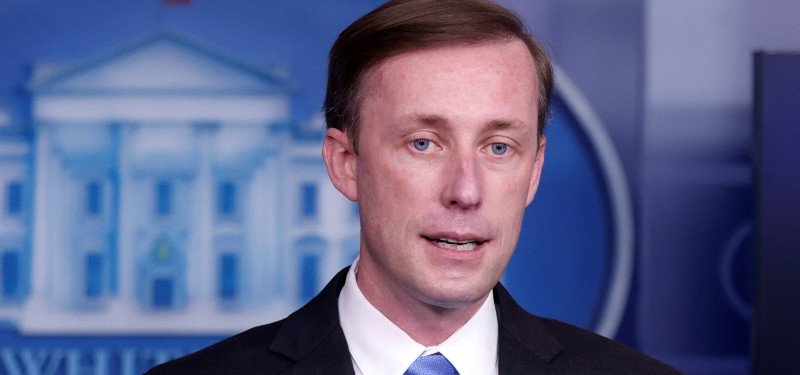
Biden aide: Ukraine's future membership in NATO "not negotiable"
Jake Sullivan, the US National Security Advisor, said on Sunday that Ukraine's future membership in NATO is not negotiable. Sullivan made the remarks during an interview on the ABC News program "This Week". He was responding to questions about the July 11-12 NATO summit, where Ukraine's membership was a major topic of discussion.
- World
- Anadolu Agency
- Published Date: 09:25 | 16 July 2023
- Modified Date: 09:25 | 16 July 2023
US National Security Advisor Jake Sullivan said on Sunday that Ukraine's future is in NATO and that this is not a "negotiable" issue.
The remarks come after questions on the July 11-12 NATO summit and Ukraine's membership during a television program "This Week" on ABC News where Sullivan appeared as a guest.
"We said in the communique that Ukraine's future is in NATO, period, full stop. No qualifications. No negotiations with anyone. It is going to happen," said the national security advisor.
He stressed that the US support for Ukraine against Russia will continue, and he believed that the American people would continue to support this stance.
While acknowledging that membership is currently not possible, Sullivan explained: "First and foremost, Ukraine joining NATO while the war is ongoing would mean NATO engaging in a war with Russia. This would also imply the US engaging in a war with Russia. Neither NATO nor the US is ready for that."
He said that every candidate country for NATO membership needs to undertake certain democratic reforms, acknowledging that Ukraine has made significant progress but emphasizing that further reforms are necessary.
At the latest NATO summit, allies reaffirmed that "Ukraine's future is in NATO," agreeing on a multiyear program to help transition Ukraine from Soviet-era to NATO standards and make its forces fully interoperable with the military bloc.
The assistance includes supporting Kyiv's armed forces, upgrading the alliance's political ties with a new NATO-Ukraine Council, and bringing Ukraine closer to NATO membership.
Sullivan also said in another TV show that the diplomatic cost for Moscow would be enormous if Russia withdraws from the Black Sea grain agreement.
Pointing out that the Black Sea grain agreement will expire tomorrow night, Sullivan said: "I can't predict what Vladimir Putin will do. He has been all over the map with respect to this initiative over the course of the past many months. It is possible that Russia pulls out of it, it is possible they continue."
If Russia withdraws from the agreement, Sullivan stressed, the world would describe it as "Russia has turned its back on ensuring that the countries of the global south and Africa and Latin America and Asia can get the food they need at affordable prices. And I think that will come at an enormous diplomatic cost to Russia going forward."
"We are prepared for any scenario and we're working closely with the Ukrainians on that," he added.
A year ago, Türkiye, the UN, Russia, and Ukraine signed an agreement in Istanbul to resume grain exports from three Ukrainian Black Sea ports which had been paused after the Russia-Ukraine war began that February. A Joint Coordination Center was set up in Istanbul with officials from the three countries and the UN to oversee the shipments.
However, Russian officials have strongly hinted that this month they could block the extension of the grain deal, complaining that parts of the deal to allow Russian exports have gone unfulfilled.

